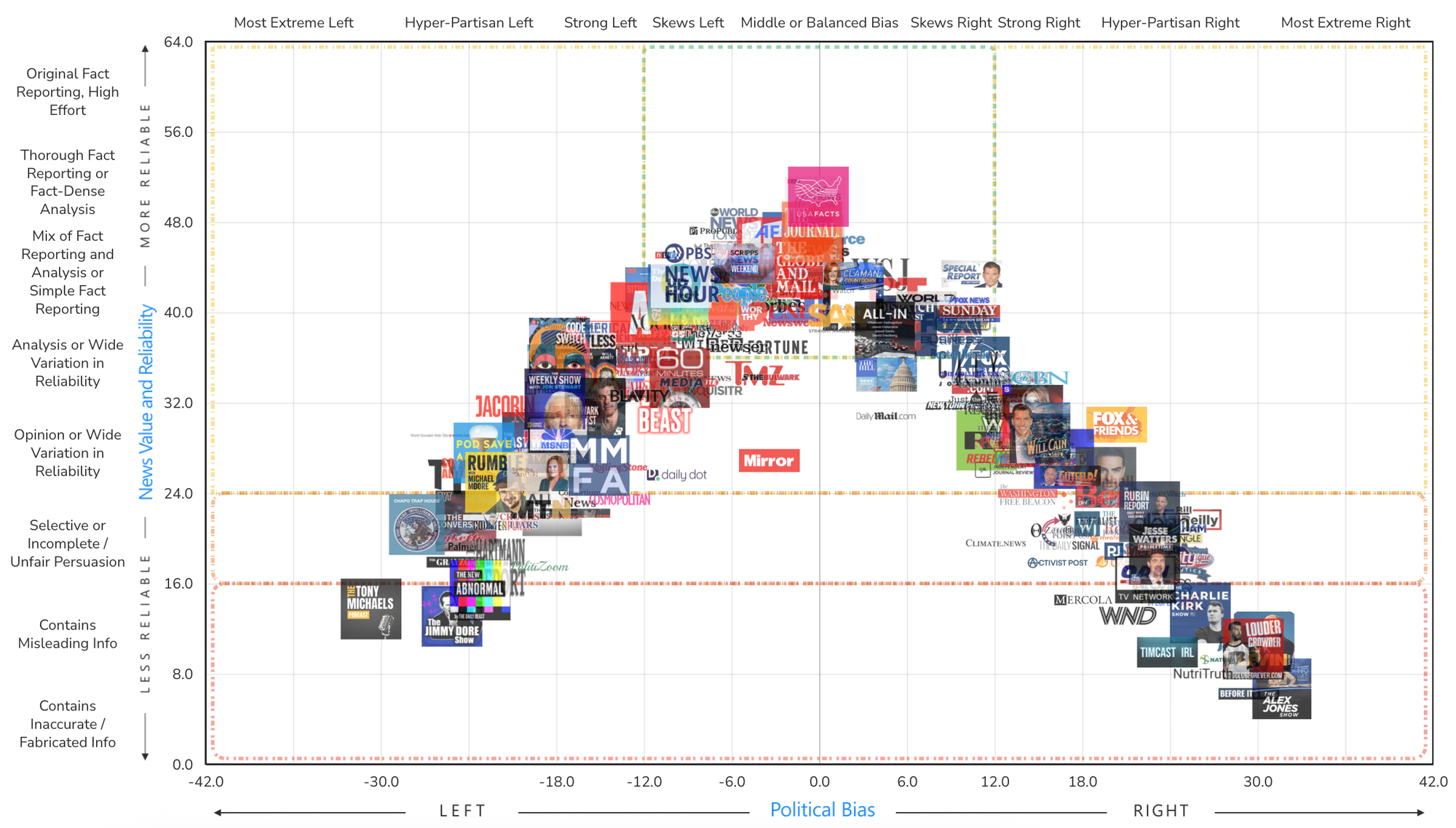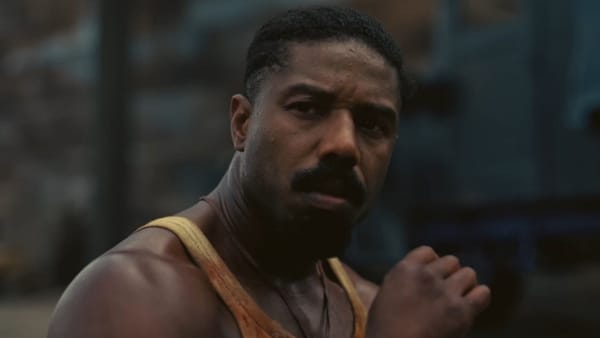There's Good News and Bad News, Part II

This is a follow up piece to a post I published last week. Make sure you check that out here!
Part I went over how the economic incentives of the news industries create an imbalance between what gets attention and what deserves attention. On a wide scale, it is extraordinarily difficult to disrupt this, but for individuals I believe that it is important to make changes. What follows here is not an outline for new business models (although I do have some thoughts about that lol). It is a resource for individual people to help them make more active, civic-minded decisions in the ways they interact with the world.
Where we are
Although I touched on it in Part I, I want to be more explicit describing the problems that consumers of news are currently facing. Basically it boils down to: private equity dismantling functioning media outlets, mega corporate media conglomeration forcing news to be a profit engine for investors, billionaire owners thumbing the scales of their news outlets and news aggregators to suit their self interests, the disappearance of local news, declining literacy, a concerted right wing, Christian nationalist effort to work the refs, gambling and rampant financial speculation, access journalism, and a presidential administration/legislative branch/Supreme Court that are actively creating the most hostile environment for the First Amendment in living memory.
Got it? Great. Now let's talk about what you can do about it. Here are five suggestions for adjusting your news diet.
Individuals > Brands
You've probably seen a chart that purports to map the political biases of news organizations. Here's an example of one:

I don't love these charts. I find it very easy for insincere commentators to look at this and "both sides" the hell out of it. "See! There's extremist conspiracists on both sides!" But this chart lacks a third axis for influence.
Another thing that rubs me the wrong way about a chart like this is that, for example, it puts The New York Times as ideologically to the left of NPR and Al Jazeera. I don't need to get into it right now, but that's, uh, kinda wild. There may be individual people at these outlets who align this way, but the institutions on the whole are harder to pin down.
I worry that people come to align with a brand - MSNBC, Fox News, The New Yorker - and not with the individuals who produce work for those brands. Despite the best efforts of editors and producers, the quality of work put out by an outlet can vary widely between different individual people. An opinion piece in the Times written by Jamelle Bouie is very different from a piece by Bret Stephens.
What I am trying to stress here is that it is good to find individuals you trust over companies you trust. Doing this allows you to disentangle your news from sides, teams, and in-groups. There is nothing inherently wrong with being on a "side," but aligning oneself internally to the specific ideas of specific people will fight back against the confirmation bias and groupthink that comes from being in an in-group.
One practical way of doing this is by finding work you enjoy and then finding the creator on social media. Often, you'll find that they have collaborated or uplifted the work of others. This can even come in the form of retweets! Sometimes retweets are endorsements!
Here are some specific people I love following, reading, and watching separate from the companies they may work for: Jon Bois, Jamelle Bouie, Harry Brewis (Hbomberguy), Kashana Cauley, Dana El Kurd, Becca Farsace, Aubrey Gordon, Hank Green, Megan Greenwell, Derek Guy (dieworkwear), Chris Hayes, Michael Hobbes, Marisa Kabas, Mina Kimes, Osita Nwanevu, Jenny Odell, John Oliver, Peter Shamshiri, Olúfẹ́mi O. Táíwò, Jillian C. York.
Understand the platform
The difference between a news outlet and a news aggregator is a bit blurrier than it used to be, but I want to use the term "platform" here to describe the way you get news.
So what's a platform? A platform is a place through which you receive the content of your news. So television is a platform. TikTok, YouTube, Twitter, and Reddit are platforms. An old school RSS feeds are a platform. Your podcast app, Google News, Apple News, Instagram, Substack, email newsletters. Even more broadly, your phone is a platform. The platform is not what you're reading/watching/hearing but where and how.
Importantly, platforms often come with their own business models. Linear TV is mostly advertiser funded. Podcasts are mostly advertiser funded with a bit of audience funding. The social media sites are predominantly advertiser funded. Streaming is mostly subscriber funded but increasingly advertiser funded. Email newsletters are most often subscriber funded. And I probably don't need to tell you how your phone ended up in your pocket or your TV against the wall.
All of these business models come with their own baggage. In exchange for high levels of funding for professionalized producers, advertisers require loads of data and (occasionally) some editorial input. In exchange for personalization and community, podcasts and email newsletters ask for more than just the attention of their audiences.
Knowing how the platform you get your news makes money is key to understanding what stories get told on it.
Here are some platforms I use to get my news: Bluesky, Reddit, Apple News, Techmeme, Mediagazer.
How do you solve a problem like Jeff Bezos?
It's simple, really. Cancel your WaPo subscription.
Following his intrusion on the editorial independence of the opinion writers at his newspaper, a movement started to boycott the Washington Post. Since he nixed the Kamala endorsement in 2024, other actions such as opening up the paper to AI have inspired further cancellations. I am fully aware that the estimated 12% hit that WaPo got in subscribers means very little to the bottom line of a man like Jeff Bezos. Imagine each word in this newsletter represents a million dollars, so that the word "There's" in the title represented the first million dollars of Jeff's wealth. When you read the word at the end of this sentence, you'll have hit one billion dollars.
Bezos bought the Post for everything written before "1. Individuals > Brands."
According to Forbes, his personal wealth would be tallied up by your eyes reading and rereading what you've read so far around 238 times.
Thus, the Post represents a vanity project for Jeff, who pushed around its editorial board not because he thought it's what audiences wanted, but because he is a self interested person. We are all self interested people, but not all of us have one of the most storied and highly regarded news outlets in the world to tip the scales for us.
This is a story just about Jeff, but there are multiple outlets and platforms that are under the influence of whiny crybaby billionaires who, despite offering very little for the labor who make their companies possible, despite offering very little for the planet's resources they are burning, insist that we all agree with them and thank them for sending our pop stars to the edge of space or eroding the good will generated by USAID.
While the legacy media institutions are still valuable for their global reach and ability to report facts on the ground, their role as analysts or truth-to-power speakers is profoundly compromised by the likes of Bezos, Trump, Musk, or Murdoch. I do my best to stay away from them and their subsidiaries as much as possible.
Invest in independent, non-profit, and cooperatively owned outlets
The most effective balm against news that is curdled with corporate interest exists. It comes in the form of smaller organizations whose incentive structures are not directly reliant on the mechanisms of the attention economy. There is an entire class of these types of outlets, and they range from individual email newsletters all the way to Wikipedia (yes, I'm counting Wikipedia).
There are a number of drawbacks to getting your news primarily from places like these. For one, it is often more expensive, as outlets like this rely on individual subscriptions and donations to survive. Also, without the history that more established orgs have it can be harder to tell the credibility of a smaller outlet. There is a lot of garbage passing as journalism on Substack, for example. But here's the thing. If you are someone who is smart (you are), you can tell the difference between the good and the bad news. And for just a few dollars a month you can not only get high quality work, but also stories that are directly relevant to your local area and your interests.
In fact, this is how I would encourage you to go about this. Look for outlets based on where you live and what you like. Here are some location based examples:
- New York: Hell Gate
- Washington DC: The 51st
- Texas: The Texas Observer
- Minnesota: Minnesota Reformer
- Chicago: Block Club Chicago
- California: CalMatters
And here are some for particular interests and identity groups:
- Tech: 404Media
- Music: Hearing Things
- Trans Issues: Assigned Media
- Sports: Defector
- Science: The Xylom
- Pop Culture: Pop Heist
One notable characteristic of outlets like this is how personal they feel. When you read them enough, you get to know the people behind them, and it can give you a more supported sense of community than, say, a random meme page on Instagram.
Finally, there are big dogs like ProPublica and DemocracyNow!. These are institutions with history and legacy that do incredibly meaningful, effective work.
Know your opposition
One of my motivations in helping people build up a better approach to their news is a simple fact: people vote against their interests. You'll see, occasionally, polling on various hot button issues in our country that seems off. Across the board, the majority of Americans favor abortion, favor common sense gun restrictions, favor federally ensured health coverage for all Americans, favor increased taxes on the wealthy. But if majorities favor these things, why are these issues still debated as much as they are? Even factoring for inherent inefficiencies in a bureaucratic democracy such as our own, why don't we see much movement here?
I believe that in order to make our democracy work, we need to spend less time attempting to convince people who disagree with us and more time seeking to understand them.
What I am not saying is that you need to go out of your way to understand the likes of Tucker Carlson, Charlie Kirk, or Matt Walsh. Those guys are opportunistic grifter assholes who have found a place being depraved, sad little men. There! You understand them! I am speaking more about their audiences.
Every so often I make a stop in r/conservative, one of Reddit's largest subreddits for people on the right. While I have been saddened to see the ways in which some people will write about trans people, immigrants, and Democrats generally, it is striking the number of comments from self-identified conservatives that would be right at home in more lefty spaces. There is an extreme animosity for the rich and powerful and a mythic displeasure with What Has Happened To Our Country. There is economic frustration, good faith concern about personal liberty, and alignments around identity. These are all things you'll find in so-called "blue" places.
Seeking to know your opposition does not necessarily require you to understand them, per se, but to understand what they are being told. Hate reading/watching is a perfectly viable and natural way to capture this, but always remember that the people who watch Fox News are not the people profiting off of Fox News.
This is all to say that I believe most opposition in this country is fabricated from legend and storytelling, and in order to sincerely build solidarity, it is required of us to understand the objectionable mythology our potential allies are being fed.
Writing these two pieces has been like pulling teeth. After not writing for a bit, I have been pushing through some serious blocks in order to get these out there. To be honest, they are about 80% of what I want them to be, and there's a ton more nuance I'm not approaching. But I am hopeful that you are the kind of reader who is accepting of ideas in process.
If you just skipped to the bottom, here's the TL;DR of this piece:
- Current economic incentives cause an imbalance in what deserves and what gets attention
- It's important to be more civic minded in one's approach to the news
- Here are some of my tips:
- Invest in people over companies and brands.
- Understand the economics of your news platform
- Avoid the billionaires
- Invest time and attention in independent, non-profit, and worker owned media
- Seek to understand the opposition's messaging
That's all for right now, friends. There's so much to talk about here. Much I didn't get to.
Oh, and by the way, if every character in this piece accounted for one million Jeff Bezos dollars, the period at the end of this sentence only gets you to around $13 billion of his $238 Billion net worth.





